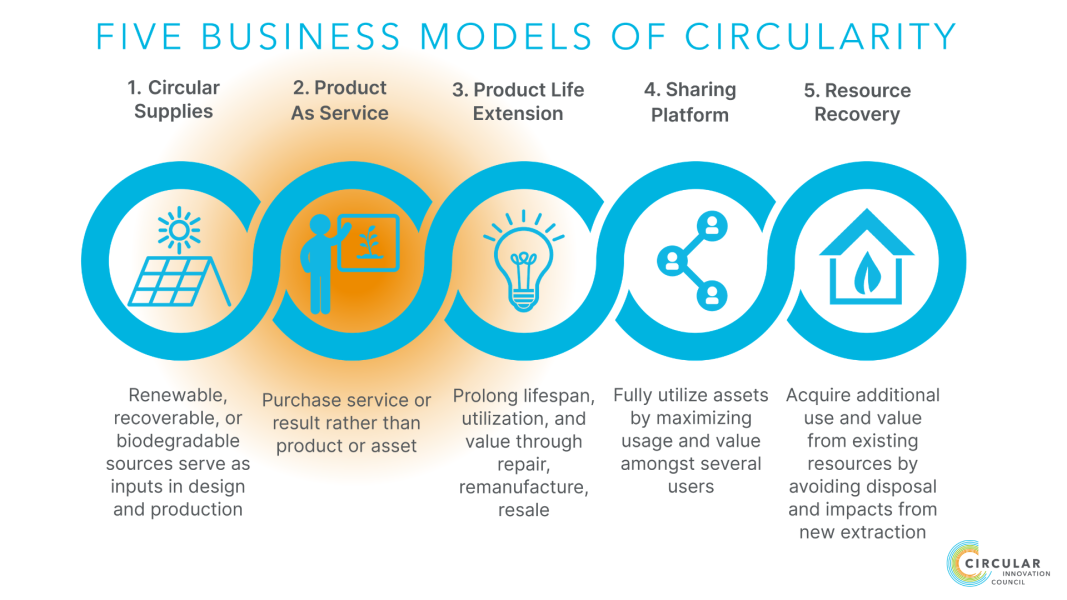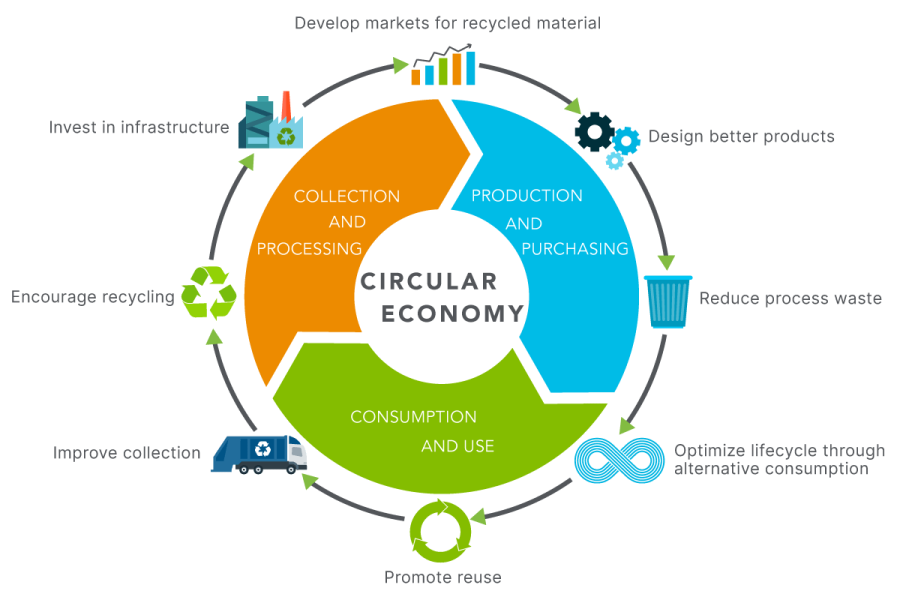
Humanity’s current level of consumption is exceeding Earth’s ability to sustain it. In the current “take-make-use-waste” linear economy, raw materials are extracted to produce goods that are used and then discarded as waste. Though much of what we discard still holds value, just a small portion of materials is cycled back into the economy. The vast majority ends up in landfills, incinerated, or is released into the environment. While non-renewable resources are being depleted and renewable resources are being extracted faster than they can be replaced, demand for products and materials continues to rise.
The impacts of these consumption habits include land degradation, pollution, biodiversity loss, and the emission of greenhouse gases, as well as economic and social impacts, including the disproportionate exposure of marginalized communities to pollution.

Increasingly, the circular economy (CE) is being considered as an alternative to the dominant linear economic model. The CE conserves material resources, reduces energy and water use, and generates less waste and pollution, ultimately reducing the impacts of extracting resources while still meeting the material needs of a growing global population.
Turning Point explores what a circular economy is, how it works, and what it could mean for Canada. It examines the opportunities and challenges Canada will face in planning a circular economy transition. Included in the report is an estimate of the current circularity of the Canadian economy and four scenarios that illustrate what the Canadian economy could look like in 2040.
This report was reviewed in draft form by individuals selected by the Canadian Council of Academies — including Circular Innovation Council Executive Director Jo-Anne St. Godard — for their diverse perspectives and areas of expertise. The reviewers assessed the objectivity and quality of the report. Their confidential submissions were considered in full by the Panel, and many of their suggestions were incorporated into the report. They were not asked to endorse the conclusions, nor did they see the final draft of the report before its release. Responsibility for the final content of this report rests entirely with the authoring Expert Panel and the CCA.
We respectfully acknowledge that we live, work and play on the traditional territory of many Indigenous Nations and we humbly extend our respect to Indigenous individuals, communities and Elders, past and present, as the traditional custodians of this land.
Circular Innovation Council is a registered charity.
Charity Registration Number: 119112118 RR 0001